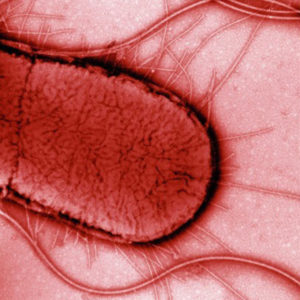Genomics and Clinical Microbiology 2024
14–19 January 2024
Wellcome Genome Campus, Hinxton
Training in molecular and genomic techniques for microbiological diagnostics and infection epidemiology
Summary
The future of microbiological diagnostics and infection epidemiology is increasingly centred on rapid and point of care molecular testing, including the application of nucleotide sequencing technologies. Consequently, practitioners in clinical microbiology and related areas must process and interpret molecular data that are very different from the information generated by familiar culture-based and serological microbiology techniques. The importance of these technologies was dramatically highlighted by the COVID-19 pandemic.
To demystify this crucial, exciting, and expanding area, the Genomics and Clinical Microbiology Advanced Course, presented by leaders in the field, combines hands-on laboratory and bioinformatics work, faculty lectures, and small-group discussions. The course aims to equip consultants, clinical scientists, and specialist registrars, in infection disciplines with sufficient understanding of these areas to meet these challenges. There is an emphasis on the application of molecular and genomic techniques that are currently being implemented, but the course also explores approaches that are likely to enter practice in the near future. Employing a range of practical approaches, the course programme includes: sample collection and preparation; characterization of isolates with a variety of molecular techniques; data interpretation and dissemination; and monitoring treatment responses.
The practical part of the course provides laboratory and computer data analysis sessions that examine the application of molecular, specifically genomic, techniques to clinical practice. Learning is centred on three clinical scenarios that exemplify different challenges and solutions:
- tuberculosis;
- healthcare associated infections; and
- encapsulated bacteria.
Different methods and approaches will be demonstrated for each of these clinical areas. Importantly, as genome sequencing is increasingly entering clinical practice there will be discussion about how such methodologies can be incorporated into the clinical workflow. Participants will generate their own data and analyse it on the course to make public health, clinical and infection control decisions.
Target audience: This course is designed for clinical scientists, specialist registrars or consultants in medical microbiology.
CPD Accreditation
The course has been approved for 43 CPD credits by the Royal College of Pathologists.
Learning outcomes
Having completed the course, participants will have acquired:
- An advanced understanding of the theoretical bases of pathogen genomics, including the application of population genomics to epidemiology and clinical microbiology;
- A wide appreciation of the currently available technologies for whole genome analysis and likely future developments;
- A thorough knowledge of the clinical applications of genomics in developing diagnostics and how these can be deployed and exploited in clinical settings;
- An overview of the latest research and development in the area, informed by state-of-the-art examples.
They will have performed:
- A range of molecular analyses, including whole genome sequencing on diverse platforms;
- A variety of molecular diagnostic techniques that depend on the application of genomics to practice;
- Data analysis using a wide variety of software, including variant mapping and gene-by-gene analysis;
- An investigation of three clinical scenarios that illustrate how the techniques, software, and theoretical approaches covered can be applied in real-world situations.
Programme
The course will cover a range of diagnostic techniques including:
- Design, implementation, and interpretation of real-time PCR tests for pathogen detection;
- Molecular approaches to detect multiple pathogens;
- Whole genome sequencing (WGS);
- PCR and sequence-based isolate characterisation;
- Bioinformatics analysis and data interpretation;
- Outbreak investigation and public health application;
- Monitoring response to treatment
- Data analysis, interpretation, display and dissemination.
Topics included in practical classes, demonstrations, and/or lectures:
- Theoretical concepts for modernising and developing a molecular diagnostic service;
- Conceptual basis and background to microbial phylogenetic analysis and population biology;
- Specimen collection and contamination problems;
- Whole genome sequencing technologies and clinical applications
- Technique discrimination – identifying the question and choosing the appropriate technique;
- Case studies demonstrating the relative merits of different approaches;
- Presenting molecular data in the context of clinical scenarios.
Instructors and speakers
COURSE INSTRUCTORS

Martin Maiden
University of Oxford, UK
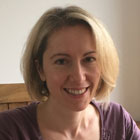
Katarina Oravcova
University of Glasgow, UK
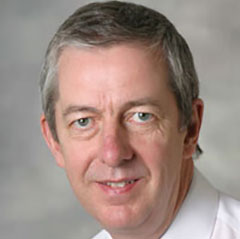
Stephen Gillespie
University of St Andrews, UK
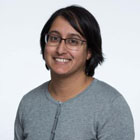
Charlene Rodrigues
London School of Hygiene and Tropical Medicine, UK
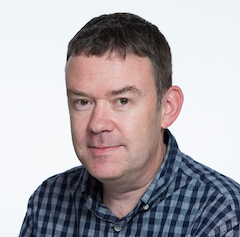
Keith Jolley
University of Oxford, UK
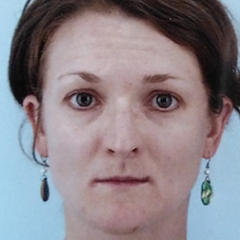
Natasha Walbaum
University of St Andrews, UK

Marie Chattaway
UK Health Security Agency, UK
How to apply
Prerequisites
Applicants should be clinical scientists, specialist registrars, or consultants in medical microbiology.
How to Apply
Please click the Apply button above to begin the online application process. Places are limited and will be awarded on merit. If you have any problems with the online application process, please contact us.
Please note: Applications must be supported by a recommendation from a scientific or clinical sponsor (e.g. supervisor, line manager or head of department). A request for a supporting statement will be sent to your nominated sponsor automatically during the application process. Applicants must ensure that their sponsor provides this supporting statement by the application deadline. Applications without a supporting statement cannot be considered.
Travel visas
Successful applicants will be provided with a support letter for their visa application, if required.
Please visit the following websites for further information on visiting the UK:
Cost
| Cost | ||
| *Course fee | £995 |
*The course fee is subsidised by Wellcome Connecting Science and applies to non-commercial applicants. Please contact us for the commercial fee.
Bursaries
Limited bursaries are available (up to 50% reduction on the course fee) and are awarded on merit. If you would like to apply for a bursary, please complete the bursary section of the online application form.
Where there are many bursary applications, the selection committee may issue smaller amounts.
Applicants will be notified of a bursary award along with their place on the course, usually within one month of the application deadline. The decision of the selection committee is final.
Please note that both the applicant and sponsor are required to provide a justification for the bursary as part of the application.
Additional funding opportunities
Visit our support page for additional financial support opportunities currently available.
Extra accommodation
If you wish to book onsite accommodation either side of the course dates, please contact the Conference Centre directly.
Accommodation services phishing scam – please be vigilant. More information.
Testimonials
Feedback from the 2022 Course
“…everything was covered..”
“…well-delivered with excellent tutors…”
“…the best course I’ve ever done…”
“…I wish I had completed these earlier in my career…”
